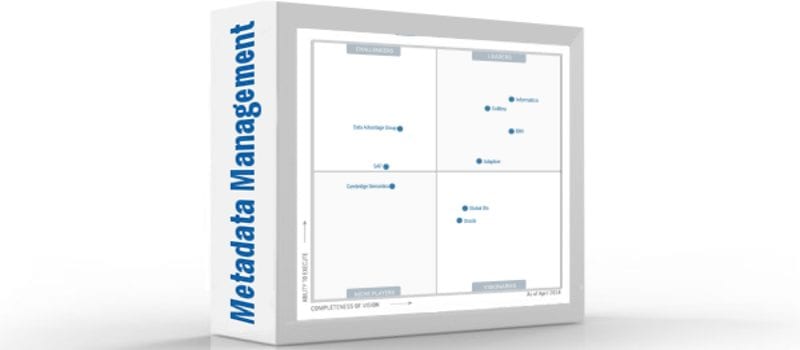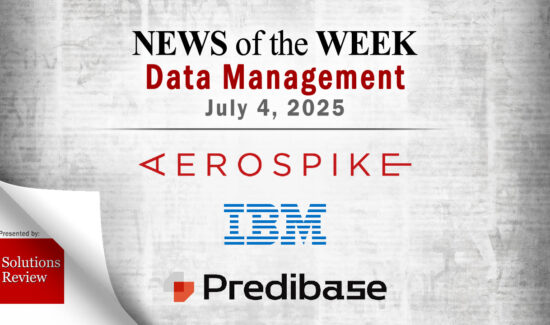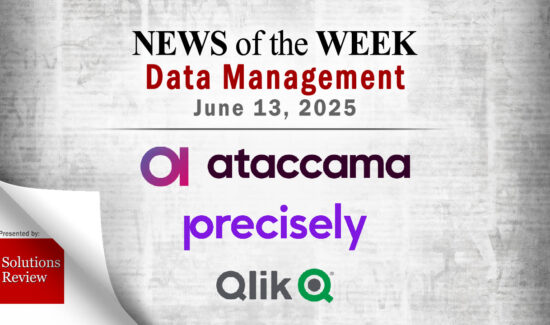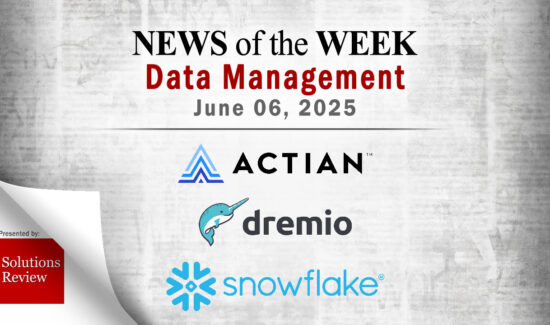Gartner Magic Quadrant for Metadata Management: Key Takeaways


Gartner recently released their 2016 Magic Quadrant for Metadata Management Solutions. According to the enterprise technology research giant, by the year 2020, 50 percent of Data Governance initiatives will be deployed with policies based solely on metadata. Gartner explains: “The growing need for organizations to treat information as an asset is making metadata management strategic, driving significant growth for metadata management solutions.” The Data Lake is a driving factor for the widespread enterprise of metadata management offerings. However, the report claims that by 2018, 80 percent of Data Lakes will not include effective metadata management capabilities, thus impacting efficiency.
Metadata simply summarizes data, which has the ability to make finding and working with relevant data easier. Think of it as data bout data. Metadata can be created manually by a user, or automated by a data processing tool. Metadata commonly describes how and when and by whom a particular data set was created and what native format it resides. This is the first year Gartner has developed a market report for this sector, and by the time the 2017 Magic Quadrant rolls around, the expectation is that the vertical will have doubled in size based on annual revenue – to more than $300 million.
 The 2016 Gartner Magic Quadrant for Data Warehouse and Data Management Solutions for Analytics:
The 2016 Gartner Magic Quadrant for Data Warehouse and Data Management Solutions for Analytics:
- Complete enterprise market overview from leading researchers
-
- Magic Quadrant graphic for quick and easy vendor comparison
- Strengths and weaknesses of the top integration tools
- Expert analyst recommendations
The leaders in metadata management for this year are Informatica and IBM, two mega-vendors, and the top dogs in Gartner’s Magic Quadrant for Data Integration Tools. Neither provider needs an introduction and have dominant market portfolios in the Big Data space. Collibra and Adaptive round out this season’s Magic Quadrant market leaders. Headquartered in New York and second to only Informatica in terms of standing in this graph, Collibra is touted by Gartner as a leader in Data Governance and information stewardship. Adaptive offers broad metadata management use cases, such as those involving Big Data and analytics or regulation and compliance.
Data Advantage Group and SAP make up the challengers quadrant for 2016. Data Advantage Group is based in San Francisco, California and maintains a library of hundreds of virtual machines that allow replication for MetaCenter customer environments and tools they support. SAP’s market presence is broad, embracing many aspects of information governance such as Data Integration, master data management, and data quality.
Global IDs and Oracle represent a two-vendor race in the visionaries quadrant. Global IDs offers an innovative approach to metadata management, providing automated machine learning machine-centric capabilities to curate metadata assets. Oracle offers a vast and comprehensive portfolio of Big Data tools, and the provider views metadata management as a prerequisite for integrating critical core capabilities such as business continuity, data movement, data governance and streaming data capabilities.
Cambridge Semantics rounds out the metadata management market report. Currently a niche player, the company has a real chance to move into the challengers column with strong business execution leading up to Gartner’s 2017 analysis. Based in Boston, Massachusetts, Cambridge Semantics offers a tool that customers describe as having a high return on investment. In addition, reference customers also considered that the vendor’s solutions fulfill organizational needs for impact analysis.
Read Gartner’s Magic Quadrant.
Widget not in any sidebars


















